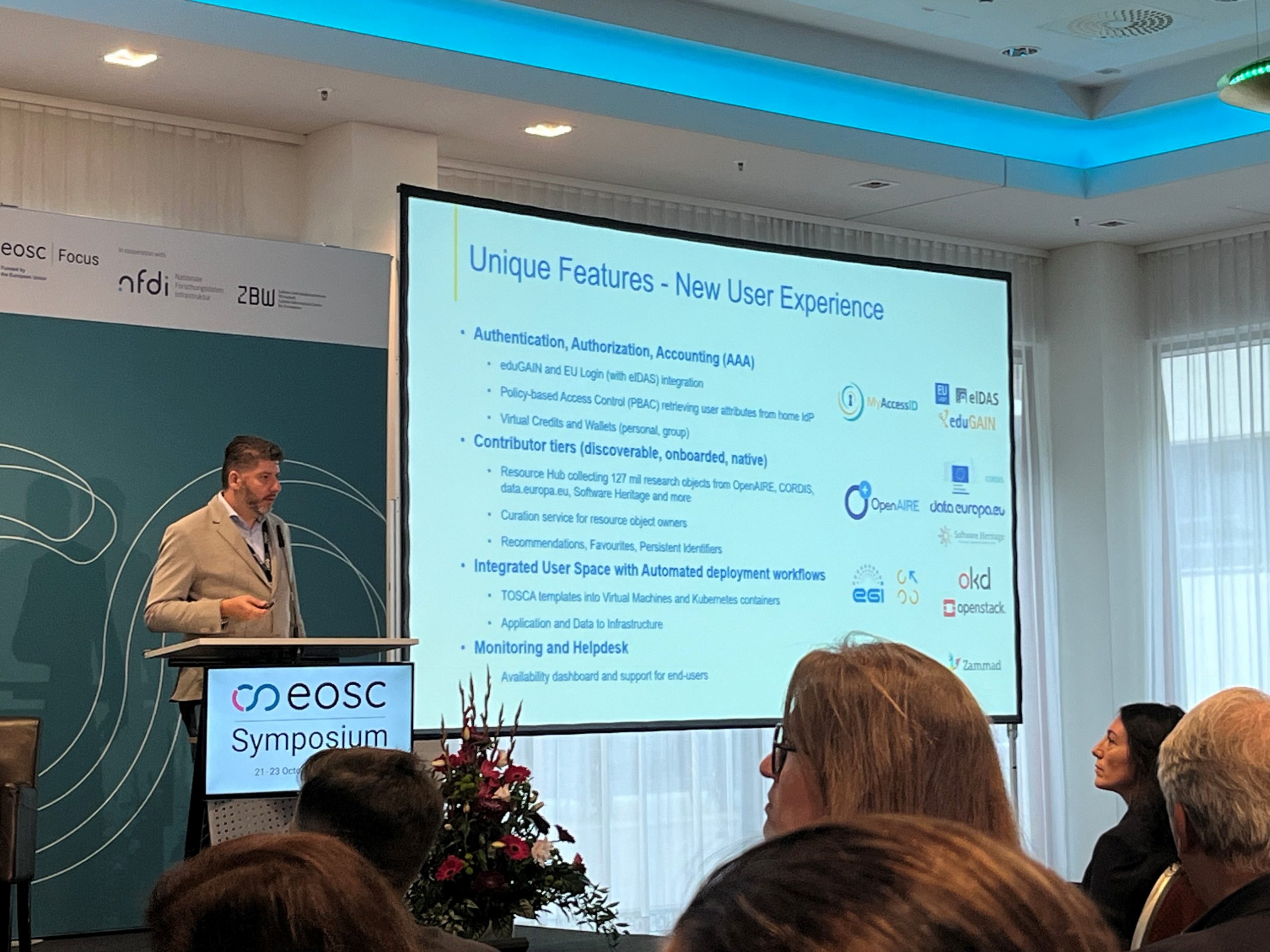
The internal market of the European Union relies on four freedoms: the free movement of goods, services, people, and capital. A fifth freedom has been proposed to be added: the free movement of knowledge, which includes the freedom of data, research, innovation, skills, and learning (Letta 2024). To achieve this fifth freedom, it is essential to create a European Knowledge Commons.
EOSC, or the European Open Science Cloud, aims to provide a reliable and open virtual environment for European researchers, companies, and citizens across disciplines and borders. Despite its name, EOSC is not strictly a cloud service or a mere technical solution. Instead, it can be seen as a socio-technical infrastructure, which includes technical services as well as stakeholder communication, securing funding, and making policy decisions. The construction of EOSC is based on a long-term process initiated by the European Commission back in 2015. During the years 2018–2020, various parts of EOSC were built primarily through Horizon 2020 funded projects. The development of EOSC is guided by a tripartite governance model called EOSC Tripartite, which consists of the European Commission, the EU-countries participating in the EOSC Steering Board, and the EOSC Association, representing the research community.
The EOSC ecosystem brings together tools and services for discovering and reusing research data produced according to the FAIR-principles (Findable, Accessible, Interoperable, Reusable). EOSC has strong support from the European Union, as it is one of the key initiatives aimed at consolidating the implementation of open science practices in Europe.
The University of Helsinki was selected as an observer member of the EOSC Association in spring 2024. The EOSC Symposium held in Berlin from October 21–23, 2024, provided an opportunity to get acquainted with the stakeholders involved in the EOSC ecosystem, such as representatives of research organizations and communities from various fields, funders, decision-makers, and data- and e-infrastructure representatives. From the University of Helsinki Library, the symposium was attended by Chief Librarian Minna Niemi-Grundström and information specialist Niina Nurmi from Data Support.
The 2024 symposium marked a critical step in building EOSC. The EOSC EU Node, which provides the core services of EOSC, was launched during the Symposium. In this first phase, key services of the EU Node include virtual machines, a Jupyter Notebook -tool, and data transfer tools. At the same time, the EU Node provides a technical and administrative model for future nodes. As EOSC expands, various national, regional, or thematic research infrastructures and organisation can link to the EU Node as new EOSC-nodes, thus forming a federated “system of systems”, the so-called EOSC Federation.
With the launch, researchers of Finnish research organisations also have access to the services provided by the EOSC EU Node. Users log into the EU Node with their institutional credentials, so there is no need to create a separate account. The demand and capacity of the services offered on the platform are monitored using virtual credits, which do not have any actual monetary value.
The EOSC Symposium program was extensive. Examples of topics that sparked discussion included the need for the formation of national EOSC-nodes and, more broadly, what should be implemented at the national level in Europe and what should be done by federating services. The participants of the symposium were also interested in the relationship between EOSC and the Common European Data Spaces and the answer was clear – EOSC is the most advanced of the data spaces.
For more information:
EOSC EU Node website: https://open-science-cloud.ec.europa.eu/
Summary of EOSC Symposium 2024 presentations and outcomes: https://eosc.eu/eosc-symposium-2024-outcomes-and-resources/
Enrico Letta’s 2024 report “Much more than a market”: https://www.consilium.europa.eu/media/ny3j24sm/much-more-than-a-market-report-by-enrico-letta.pdf
Niina Nurmi
Information Specialist
Helsinki University Library
Artificial intelligence used in translation.
